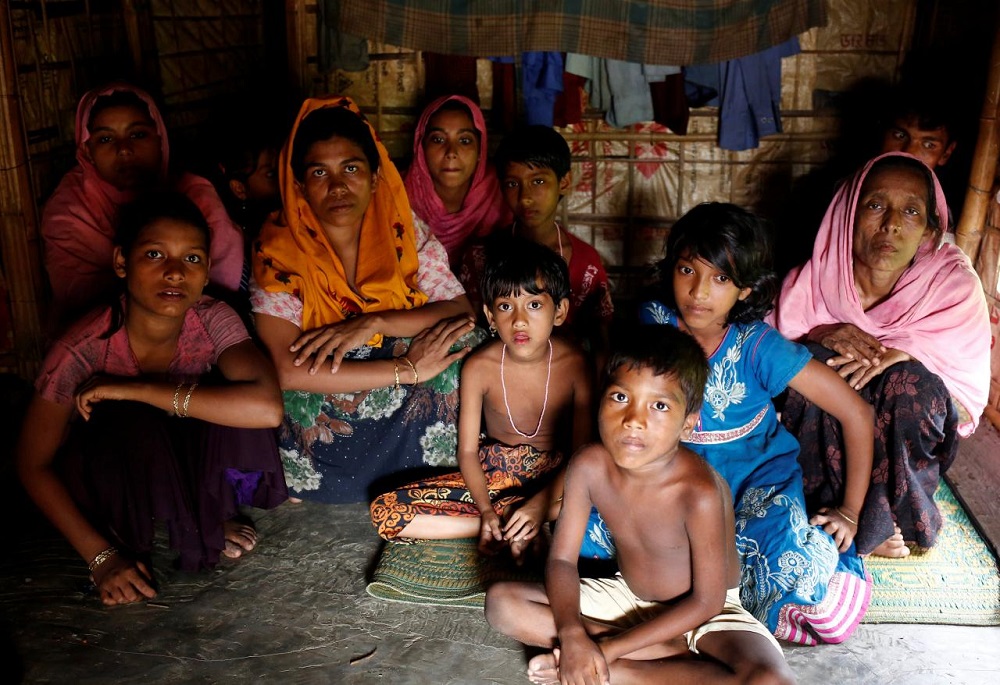More than 11,000 Rohingya Muslim refugees have arrived in Bangladesh from Myanmar on Monday in a new surge, said the United Nations refugee agency citing Bangladesh border guards.
“We’re back in a situation of full alert as far as influxes are concerned. It is a big increase to see 11,000,” Adrian Edwards, spokesman for the UN High Commissioner for Refugees (UNHCR), told a news briefing in Geneva on Tuesday.
“We have had big numbers coming across by the day over the six weeks of this emergency. So we are back up to approaching some of those peak arrivals. Clearly we have to be prepared for more arrivals,” he said.
Many of the refugees are reported to come from the Buthidaung area in Myanmar’s northern Rakhine state, which is 20-25 kilometers east of Maungdaw.
“Some said they had fled torching and killings back home; one boy was seen with a big gash across his neck,” Edwards said.
“We don’t know at the moment what is driving this,” he added. “Some of these people have fled their homes several days ago and in some cases two weeks ago, so they moved towards the border before coming across.”
There are also indications of more recent problems.
“As you may have seen from media reports which I can’t verify, but there are reports about fires being seen close to the border (and) other problems there,” Edwards said.
More than half a million Rohingya have fled Myanmar since August 25 after insurgent attacks on security forces triggered a violent government crackdown, but the rate had slowed to about
2,000 refugees per day last week, aid agencies say.
The UN has denounced the ferocious military crackdown as ethnic cleansing.
Meanwhile, a massive cholera immunization campaign began on Tuesday near Cox’s Bazar, Bangladesh, aimed at protecting newly-arrived Rohingya and host communities from the disease
which can be deadly, the World Health Organization (WHO) said.
Some 900,000 oral vaccine doses will be distributed, including 650,000 in an initial 10-day campaign to be followed by a second round from October 31 targeting 250,000 children between one and five years old, the agency said.
There is a “clear and present risk” of the spread of cholera among the population.
Meanwhile, Myanmar launched on Tuesday its first bid to improve relations between followers of different religions since the Rohingya crisis erupted.
Despite growing international condemnation of the refugee crisis, the military campaign is popular in Buddhist-majority Myanmar, where there is little sympathy for the Rohingya, and for Muslims in general, and where Buddhist nationalism has surged in recent years.
The party of government leader Aung San Suu Kyi took the first step towards trying to calm communal animosity with inter-faith prayers at a stadium in the biggest city of Yangon, with Buddhists, Muslims, Hindus and Christians.
“This is for peace and stability,” party spokesman Aung Shin told Reuters. “Peace in Rakhine and peace nationwide.”
Traffic was jammed around the stadium as Buddhist monks had nuns packed the stands inside, along with thousands of others.
The Rohingya had pinned hopes for change on Suu Kyi’s party but it has been wary of Buddhist nationalist pressure. Her party did not field a single Muslim candidate in the 2015 election that it swept.
Rohingya are not classified as an indigenous minority in Myanmar and so are denied citizenship under a law that links nationality to ethnicity.
Regarded as illegal immigrants from Bangladesh, they face restrictions and discrimination and are derided by ethnic Rakhine Buddhists in Rakhine State, and by much of the wider population.
